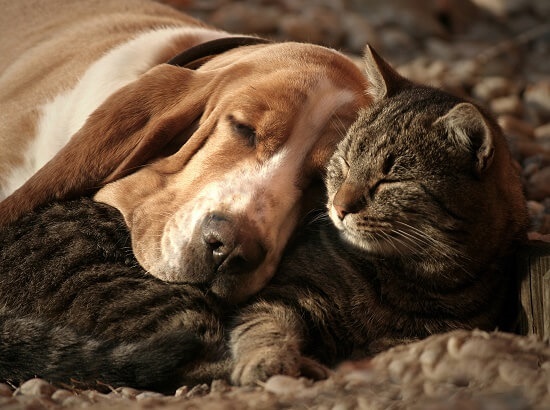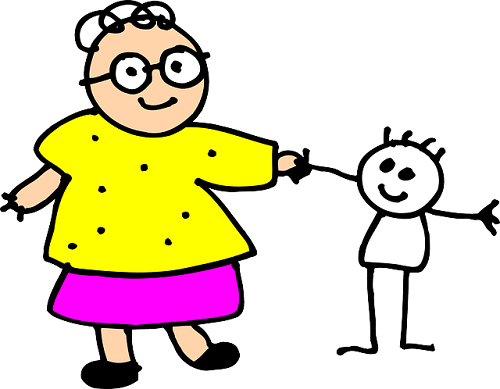
The debate about whether cats or dogs are the supreme pet has been a long and over debated debacle. I think that anyone that has owned both, or spent a fair amount of time around each, can agree that both cats and dogs each offer their own incentives as well as drawbacks. Therefore, if you or a senior you know is interested in obtaining a pet, and is undecided between cats and dogs, hopefully this article will be able to shed some light on both the positives and negatives of owning each of these animals. The short answer is that no pet will be a guaranteed success with any owner. I personally love both dogs and cats, but the individual senior as well as the chosen pet will truly determine the ideal circumstance.
Pros to Seniors Owning Cats
- The first advantageous characteristic in favor of owning a cat is that they are happy and content to spend their lives indoors. Tell that to all the cats daydreaming out windows, right? It’s important to note that there are specific cat breeds that will go crazy if they don’t go outside. But seriously, many people do keep cats indoors all the time, so depending on the senior this could be a major upside.
- Cats also tend to require less vigorous or strenuous exercise. Twenty to thirty minutes is all the time necessary to usually appease a cat, and the types of exercise activities are usually easier than that of a dog. Kitty fishing poles or laser pointers are non-stressful activities for the senior owner and can provide the stimulation necessary for the cat.
- Cats also have a tendency to enjoy laying on or in the lap of their owner, or generally near them on the couch or bed. This is good because even just stroking or petting your cat is good for arthritis and fine motor skills. Lap dogs also exist, but every cat can be a lap cat, not every dog is a lap dog.
- Cats are generally more accepted in apartments and condos as well, so if a community or healthcare home is potentially on the horizon, it is vital you know the rules before hand.
- Cats also have a positive trend associated with hearts disease, as people who owned cats were nearly 30% less likely to die of a heart attack.
- Cats are also cheaper, usually 300-800 dollars less than dogs, which comes from food, medicine, vet bills, toys, hair care, etc.
- Besides being cheaper, they are also cleaner and require less cleaning up after. Scooping the litter and the occasional brush and your house should not look any different. Cats also usually bathe and clean themselves, as opposed to having hose the dog off because he found some horse manure or deer scat, or any other foul thing they have rolled in.
Cons to Seniors Owning Cats
- First off, cats do cost money, and depending on the cat and what supplies the owner needs to purchase, they cost roughly 500 to 1,000 dollars the first year and 300 to 500 dollars each successive year. Of course prices could be more or less, but these are some guidelines that are generally accepted.
- Cats are also known to hide their illnesses and are unhappy to leave their home. This can be problematic for seniors or any owner as vet trips or finding someone to watch your cat away from your house can be complicated. Cats are peculiar about hiding their illness, for example one cat I owned had a Urinary Tract Infection and was urinating in our laundry room. It was not until we could smell it that we knew we had a problem, and removing the stench was not easy.
- Seniors with fragile skin or compromised immune systems are also more succeptible to various diseases and viruses from cats’ bites and claws. It is imperative that these seniors avoid being scratched or bitten by their pets, so finding a nice calm and peaceful cat is important. We have all heard of cat scratch fever, and though it is rare, it is still a concern.
- If your cat does venture outside, they are more prone to bring back disease or viruses, especially considering cats kill billions of birds and other small animals every year. Though it is uncommon, by letting your cat outside you have less control over what they contact and thus potentially contract, so being aware of these risks is fundamental in cat ownership.
- The final piece of advice on cat ownership for seniors deals with their temperament. Cats have varying degrees of shyness and aloofness as well as how much they enjoy being handled. It is usually suggested to find an easy-going cat that enjoys being a lap cat and being handled. This is the ideal cat for a senior, and the best way to locate a cat that fulfills this requirement is to ask your local animal shelter. Usually the volunteers or employees that work there know the personalities of the animals and can help to locate one for you or your elderly love one.
Pros and Cons of Seniors Owning Dogs
- The most obvious difference between owning a cat and dog is the amount of energy or exercise that goes into interacting with your pet. It can be both an advantage and disadvantage depending on the health of the owner. For those actively seeking more exercise, dogs are a great way to get easy and rewarding exercise, but one has to remember that age is an important component in a dog’s energy level.
- There exist many programs with the goal of connecting senior dogs with their ideal senior. Most of these senior dogs will not be adopted, and their energy levels and care needs are not as strenuous thus making great pets for seniors. Here is our list of the best dog breed for seniors.
- Dogs can also add a level of security and personal relationship that many argue a cat just doesn’t offer. Cats sleep for roughly 16 hours a day, and while this is nice for some, others prefer more interaction with their pets. Dogs offer this greater availability for stimulus, and this leads to creating a routine and deeper friendship than is usually obtainable with cats. Dogs also make us feel safe, no matter if it is a yappy lap dog or a bawling hound; dogs definitely offer more in the department of home defense.
- Finally, dogs are a great option for many medical conditions. They can be trained to be specialized in numerous fields such as but not all: diabetic alert dogs, visual assistance dogs, brace/mobility support dogs, medical alert dogs, seizure assistance dogs. These dogs are out there, and I’m not sure how much or how difficult they are to obtain, but it is at least worth looking into if interested.
- Dogs do cost more to care for though, roughly 500 to 2,000 dollars the first year for a puppy and 300 to 1,500 dollars after that depending on the breed.
Now, to be quite frank, both cats and dogs can offer an innumerable amount of beneficial factors in the life of a senior. Most of these have been discussed in a previous article, The Pros and Cons of Owning a Pet as a Senior. While both species differ greatly, research has proven that if possible, a pet usually has significant positive contributions towards a seniors “general” health and life. Actually, studies have shown that there is no difference in health benefits between owning a cat or dog, so the decision truly depends on the senior individual that is looking into acquiring a new acquaintance. I know, everyone likes to take sides, we like to argue, we like to boast that our side is the correct one, but in this circumstance, I would argue that both animals are beyond adequate and thus it comes down to personal preference. So, the question is not so much are cats or dogs better, but instead, is a cat or dog better for You?
Article written by Nick Schaller with Senior Directory, LLC


Comments